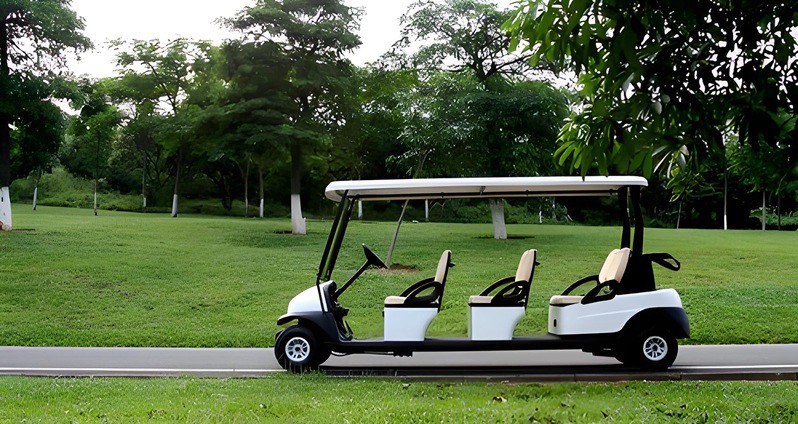Best Lithium Golf Cart Batteries: How to Choose What’s Right for You
Golf carts are no longer just for golf courses—they’re a popular choice for neighborhoods, gated communities, resorts, and even farms across the United States. Whether you’re upgrading from lead-acid or replacing a worn-out pack, choosing the best lithium golf cart battery can boost your range, hill-climbing performance, and peace of mind—especially in US climates where heat, cold, or hills test battery strength.
From voltage and capacity to safety certifications and regional conditions, here’s what you need to know before selecting the right battery for your electric golf cart.
Why the Right Battery Matters for Your Golf Cart
A battery isn’t just a power source—it’s the heart of your golf cart. A suitable battery affects:
- Acceleration and hill-climbing ability
- Range per charge
- Lifespan and cost efficiency
- Safety and reliability
An unsuitable battery can struggle in extreme heat, cold, or hilly terrains—conditions common in many parts of the US.
Understanding Your Golf Cart’s Requirements
Before buying a battery, it’s important to understand what your golf cart actually needs. Here’s a simplified breakdown of the key features to check:
- Is Your Golf Cart Gas or Electric?
- Gas-powered carts require a starting battery, much like those used in cars. These are designed for high cranking power but aren’t suitable for electric propulsion.
- Electric golf carts, on the other hand, require a deep-cycle battery system to provide consistent power for extended periods. Traditional lead-acid electric carts use multiple batteries (e.g., six 8V or four 12V) connected in series to reach 36V or 48V. In contrast, lithium battery systems for golf carts are usually single, self-contained packs designed to deliver the full 36V or 48V (or even 51.2V) without needing to connect several batteries together.
- Voltage
Most electric golf carts run on 36V, 48V, or 72V systems.
48V is the standard in many US carts.
51.2V lithium batteries are a smart upgrade—they provide the same nominal voltage with more energy stability and longer lifespan thanks to advanced cell configurations.
- Capacity (Ah)
Capacity, measured in Amp-hours (Ah), determines how far you can go on one charge.
More Ah = longer range
Choose higher Ah for longer range—especially in spread-out communities, golf resorts, or if towing is involved.
For example, some Southern and Western states have longer-range carts used on large properties or public roads.
- Size and Fit
Golf carts vary by make and model, and battery compartments aren’t always one-size-fits-all—especially when switching from lead-acid to lithium. Always check the dimensions of your battery tray and make sure the new battery will fit securely.
To ensure safe and stable installation, you can choose a lithium battery that comes with an installation kit. These often include brackets or mounting racks to help secure the battery properly—even if there’s some spare room.
Tip: Proper fit ensures not only safety but also helps prevent vibrations or movement that could damage the battery over time.
- Current: Continuous and Peak
When choosing a lithium battery for your golf cart, current rating is just as important as voltage and capacity—especially if you drive on hilly terrain or carry extra passengers.
Here’s what you need to know:
- Continuous current is the amount of power the battery can safely deliver over an extended period during normal driving.
- Peak (or pulse) current is the short burst of power the battery can supply for a few seconds—like when you’re accelerating, climbing hills, or starting from a stop.
Some customers have asked why their 48V lithium battery wasn’t performing well in hilly areas like Tennessee or Northern California. While the voltage matched their cart’s needs, the battery’s peak current rating was too low for the terrain—especially when carrying two adults uphill. The cart would slow down significantly or even shut off momentarily. This happened because the motor demanded more current than the battery could safely deliver during those short bursts of high load.
- UL Certification
For safety-conscious buyers in the US, UL certification is a key standard. UL-listed batteries undergo strict testing to ensure safety and reliability.
- Communication Protocols
Some newer carts use CAN bus or other communication protocols to monitor battery data. Choose a battery that is compatible with your cart’s controller, especially for high-end or upgraded models.
Why Choose Lithium Batteries for Your Golf Cart?
Lithium iron phosphate (LiFePO₄) batteries are quickly becoming the top choice for modern golf carts. Here’s why:
- Faster charging for busy schedules
- Lightweight design, which improves handling and reduces wear
- Longer life cycles, ideal for year-round use in warmer states
- Consistent power, even in colder conditions found in the Northeast or Midwest
- No regular maintenance, helpful in seasonal-use regions
- Eco-conscious and low environmental footprint.
Why Choose LEOCH Lithium?
At LEOCH, we understand the needs of American golf cart owners. Our lithium batteries are:
- Designed for high performance in both leisure and commercial carts
- Built with intelligent management for safety and longevity
- Bluetooth-enabled APP ensures real-time monitoring and management at fingertips
- UL-certified, not only batteries, but also chargers, for peace of mind
- Available with local support – Our US-based teams provide fast shipping, technical advice, and after-sales service when you need it.
Maintenance Tips for Lithium Golf Cart Batteries
Even though lithium batteries are low-maintenance, here are a few region-aware tips to extend their lifespan:
- Avoid deep discharges; charge before fully draining—especially important during colder months.
- Store in moderate conditions during off-season (common in Northern states) to prevent cold-related degradation.
- Use recommended chargers to prevent overcharging.
- Monitor connections and terminals in humid or coastal environments (e.g., Florida or the Gulf Coast) to prevent corrosion.
FAQs
- How Long Does a Golf Cart Lithium Battery Last?
Most lithium batteries last 8–10 years or around 2,000 to 5,000 cycles, depending on usage and conditions. Frequent use in hotter climates may slightly reduce this, but proper care can mitigate degradation.
LEOCH lithium golf cart batteries are built for long life—with up to 5,000 cycles @80%DOD. That means you can count on consistent performance for years, even with daily use.
- Can I Replace My Lead-Acid Battery with a Lithium One?
Yes. Many lithium batteries are designed as drop-in replacements. However, check compatibility with your cart’s voltage, size, and current ratings. Some older systems may require adjustments to controllers or chargers.
- What Type of Charger Should I Use for My Lithium Golf Cart Battery?
Always use a charger specifically designed for lithium iron phosphate (LiFePO₄) batteries. These chargers regulate voltage and current to safely charge your battery without overcharging or damaging the cells. Some lithium batteries, like LEOCH’s, come with a matching UL-certified charger for optimal performance and safety. Using a lead-acid charger may cause improper charging or shorten the battery’s lifespan.
- How Much Does a Golf Cart Battery Weigh?
Weight varies widely depending on the type and chemistry:
A 48V lead-acid battery system (multiple batteries) can weigh 300–400 lbs total.
A 48V lithium battery pack typically weighs only 60–120 lbs, depending on capacity.
This weight reduction improves speed, efficiency, and handling, and reduces wear on tires and suspension—especially helpful on hilly or uneven terrain found in many US communities.
Whether you’re in a coastal town, a retirement community, or using a golf cart for work or recreation, climate, terrain, and usage frequency in your region all affect how you choose the right battery. Understanding your cart’s needs and how lithium technology fits into that picture is key to maximizing performance and lifespan—no matter where you drive in the US.
Browse our LEOCH Lithium Golf Cart Batteries designed for U.S. performance. Local support, nationwide shipping, and long-lasting power—because your cart deserves more.


